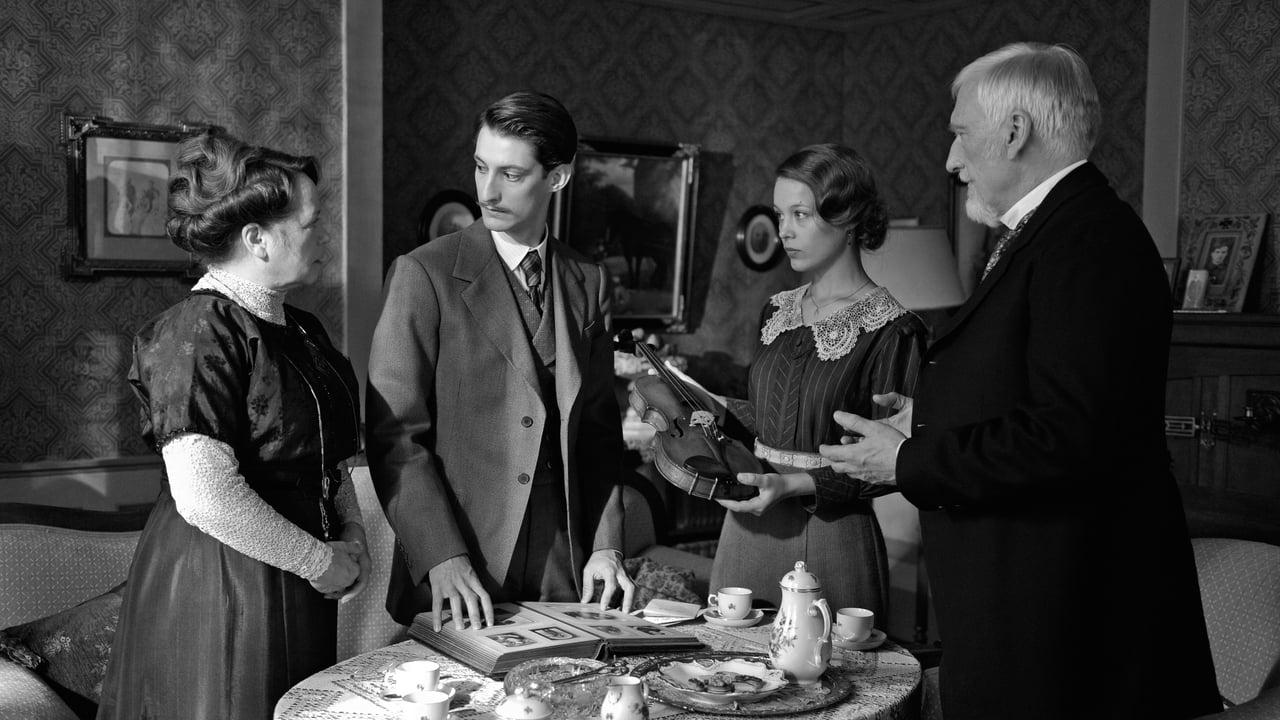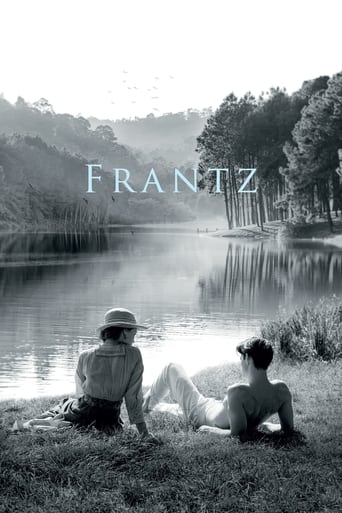

a film so unique, intoxicating and bizarre that it not only demands another viewing, but is also forgivable as a satirical comedy where the jokes eventually take the back seat.
... View MoreIf you're interested in the topic at hand, you should just watch it and judge yourself because the reviews have gone very biased by people that didn't even watch it and just hate (or love) the creator. I liked it, it was well written, narrated, and directed and it was about a topic that interests me.
... View MoreIt is an exhilarating, distressing, funny and profound film, with one of the more memorable film scores in years,
... View MoreBlistering performances.
... View MoreParis-born François Ozon is a filmmaker who has made a number of radical films in the French "New Wave" movement (a few shocking, some even salacious), probably the most popular being "Swimming Pool" in 2003. During the last few years this challenging filmmaker has begun to display a maturing without shedding his 'edge', reaching his artistic zenith in "In the House", one of 2012's finest films, but now "Frantz" may be his chef-d'oeuvre. Made just as Ozon was approaching 50, it displays not just maturity of the artist but a refinement, perhaps even a mellowing. Of course, the source material may have had something to do with it as it is loosely based on the 1932 Ernst Lubitsch Hollywood film, "Broken Lullaby". Set in a small town in Germany just after the end of World War I, the story deals with a young German woman (sensitively played by Paula Beer) who's fiancé had been killed in the war and the remorse felt by the French soldier (Pierre Niney) who killed him, but Ozon's visual style, patterned after Edouard Manet's painting, Le Suicidé, displays a sublime beauty of texture immeasurably aided by Ozon's decision to combine pristine black and white cinematography with muted color sequences. The result is a bittersweet love story conveying deep sorrow in every scene that provides an emotional experience that is almost an anomaly for the usually cynical Ozon. Praised throughout the world, especially for its cinematography by Pascal Marti, this is a film worth seeking out, even if somewhat conservative for such a celebrated French enfant terriblé.
... View MoreIt's 1919 in the small town of Quedlinburg, Germany. Anna dutifully lays flowers at her financee Frantz Hoffmeister's grave. She's living with his parents who are still devastated from his death at the front. An unknown Frenchman named Adrien is visiting Frantz's grave. He tells them that he's a friend from their time in Paris.The black and white look is poignant and sad. There are interesting sections of colour. I do question if the Hoffmeisters would not question Adrien's story. It's obvious where the story is going. There are good moments throughout. The most powerful is Anna on the train as she first witnesses the war damage. The ending has a good helping of understated sadness but I was looking for something even darker. This film is poetic and works fine.
... View MoreFirst, because it is an Ozon. so, your expectations are well defined. second - it seems be familiar. your memories about "Broken Lullaby" are the basic clue. but, "Frantz" is different. special. surprising. yes, provocative. for motifs out of words. it is a love story. and more. it is a war film. and more. it is the story of a meeting and discover and family and clash between different cultures. and, off course, more. because all has the status of source for new steps on a way without rules, limits and forms of delicacy remaining unique. a film like one of yours memories. seductive. moving. discret . convincing. like an old song . or a flavour. so, an experience. fragil, strange, useful. about force and vulnerability. preserving not only the realistic images of a lost period but, in refreshing manner, its spirit. so, "Frantz". it is enough its title for define each aspect of this, in charming way, film.
... View More'Frantz' is one of those films that follows you long after the screening is over. What I and maybe many other viewers of François Ozon's 2016 film will remember years from now will be the silhouettes of the two principal heroes - the beautiful German young woman Anna (interpeted by Paula Beer) whose lover, Frantz, fell on the front two months before the end of the First World War and the out-of-world French young man Adrien Rivoire (actor Pierre Niney) who is also an ex-soldier, has met Anna's lover some time in the past, and comes to put flowers on his empty grave and ease the grief of Anna and Frantz's parents. One may say that Pierre Niney is a miscast, and maybe this is true, but he is a miscast not as an actor, but in the world his fate was to live in.Frantz himself gives the name of the film, as all characters are tormented by his absence, his falling in the war makes him the victim, but actually everybody in this film is a victim of the absurdity of the war. The film succeeds to present in a moving manner how destinies are cut short by war, and how difficult are healing, forgetting, forgiving. It also asks questions about the capability of humans to cope with the horrors of the past - can they do it while facing the truth which is sometimes more cruel than their imagination allows? Or maybe lies are allowed when they can help healing or avoid reopening fatal wounds?Ozon's film also carries an anti-war message. The heroes belong to the two sides of a war that created devastation for both nations. One may have been victor, the other defeated, but both countries are in ruins, millions of lives were lost, the survivors continue to carry the scars of the war traumas but also the germs of hate that will be at the root of the next war. The symmetry of scenes and situations may seem demonstrative, but it's good to remember that blood, enmity and mistrust divided Europe no so long ago.The film makes use of black and white for the majority of the time, with colors inserted in some key moments, without necessarily marking the borders between reality and imagination, past and present, truth or fiction. It was a very good idea in my opinion to avoid the trap of a happy ending and to leave more ambiguity in place, with a mysterious lesser known painting of Manet handling to the viewers the key to what may have happened next. Questions marks are relevant for both past and future.
... View More